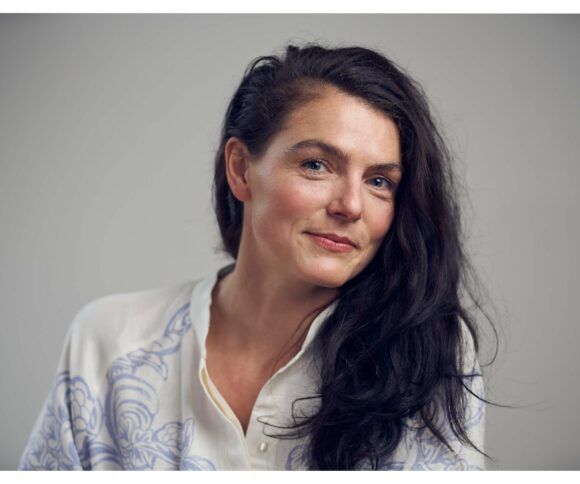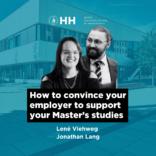
Interview with Mindfulness Coach Victoria Dressel
New Leipzig Talents: Coaching and Mindfulness
Victoria studied fashion and arts in Milan and Berlin before doing her MBA at HHL. Sports, physical exercise and exploration of body and mind accompany her for a long time. She is deeply interested in how people understand life. Victoria is a passionate mindfulness coach and yoga teacher and shares her knowledge and wide experience with HHL students in the New Leipzig Talents coaching program.
In this interview led by Professor Meynhardt and Psychologist Martina Beerman, Victoria talks about the importance of incorporating a mindfulness practice into your personal and business life.
Mindfulness is like a daily vitamin that can help to be attentive, motivated and relaxed with yourself and others. It can be especially beneficial in today’s work environment.
One of the bigger recent success stories in business is the growing number of courses and programs that focus on self-discovery, relaxation and meditation. According to the Wall Street Journal, the yoga industry itself is estimated to be worth around $42 billion worldwide. It’s obviously striking a chord with a lot of people. Mindfulness is a central element in this. You are a life coach and yoga teacher. What does it mean for you to be mindful?
Mindfulness is basically focusing on the here and now with all your senses. Most of the time our mind is either in the past or in the future, but rarely truly in the present moment. Assuming that life is only happening now, from a more radical point of view this means that we miss our life. Mindfulness also is being attentive and aware of yourself and others and perceiving your thoughts, actions and your environment in a conscious way. Clearly, many people today are looking for answers to such life questions and find them in new formats available on the market.
In your work you see yourself as a facilitator of mindfulness. What exactly does this mean to you?
I want to empower and motivate people to be more conscious of all facets of life, the bright and the dark ones. This simply means to develop the ability to focus attention. This way you gain a deeper understanding of yourself and the world around you. When I am stressed, for example, and forget to eat, drink or breathe in fresh air, I become upset and lose concentration. This certainly will have a negative effect on my ability to make decisions or on how I behave towards others – my family, colleagues or customers. Only when I am aware of the real problem I can fix it, right? Mindfulness is like a daily vitamin that can help to be attentive, motivated and relaxed with yourself and others. It can be especially beneficial in today’s work environment.
The New Leipzig Talents (NLT) coaching program, supported by BMW Leipzig and Dr. Arend Oetker, offers access to high-profile coaches in the form of an extra-curricular program. NLT is initiated and guided by the Chair of Business Psychology and Leadership in cooperation with the HHL Career Development department. Up to 25 first-year students can be admitted per year.
Each NLT participant is paired with an experienced coach for over six months and will also attend additional group workshops. Throughout the coaching, the Leipzig Leadership Model acts as a road map, helping the participants identify dimensions of good leadership.
How to apply to the program
The New Leipzig Talents program runs over a period of six months and starts in spring and autumn. The program is aimed at all first-year students of full-time and part-time Master in Management and MBA programs.
A limited number of students will be selected to participate in the New Leipzig Talents program over a six-month period. Interested students can apply online with a letter of motivation and a subsequent short selection interview.
Universities now teach mindfulness as part of the curriculum. And many of the classes are well booked. In some places, demand exceeds supply. You run a mindfulness workshop with the New Leipzig Talents group and are a coach yourself. Why should business school students learn about mindfulness in particular?
The answer is simple: in a less reliable, fast moving business world with always changing demands, you can cope far better if you know who you are and how to stay physically, emotionally and mentally balanced. Addressing mindfulness is, from my perspective, one of the best and most rewarding choices you can make for your life.
How do you approach your group of coachees in the NLT workshops?
By first making them aware of their own experiences. For example, everyone knows the moment when everything becomes too much, when it seems impossible to take in new information or to stay concentrated. It helps a lot to stop time for a moment, to consciously get out of your autopilot and take a few breaths, a few mindful movements, some fresh air – this is simply changing perspective and slowing down, coming closer to yourself again. This allows your system to relax, enables creativity and focus again. It sounds simple, and basically it is, but it is much more difficult than we think. It takes practice, every single day.
What kind of feedback do you get from your mindfulness workshops with NLT students?
I have been experiencing a lot of gratitude and incredible curiosity and openness so far. On the one hand, I address aspects that I think are essential for living a fulfilled, successful and healthy life, and topics such as sleeping hygiene or stress-related compensation strategies. Where else do you find the opportunity to openly discuss these kinds of personal challenges? And on the other hand, students often are relieved if I show them ways to cope with challenges without feeling completely overwhelmed. I also invite students to have a short one-to-one session via Zoom or phone to address personal matters that cannot be discussed in a group setting. A good number of them have contacted me afterwards. It is also possible to start a coaching process with me at any time.
Mindfulness is also knowing how to take a breath and not to react to everything right away, but making smarter decisions by taking time to think.
As a life coach, could you describe what usually happens during an intervention?
I always have an individual approach to the person or the group. Even each topic needs to be addressed in its own way. For a lasting learning experience and not just cognitive understanding, I follow a holistic approach. With one client I climb a mountain in hiking boots discussing highly emotional topics such as personal relationships. With the other I do mental training on a racing bike, a yoga mat or in nature. All of this is mindfulness training – very powerful and close to life.
In his new book Transcend: The New Science of Self-Actualization, Scott Kaufman argues that many of these techniques can lead us to believe that we are personally growing, but in the end it is only our ego that grows. Is intense introspection not in fact a way to escape the real world and all its problems? And even back in the 70s we already knew that we can only develop through concrete action.
Many studies show very clearly that regular meditation, for example, trains basic social intelligence skills such as compassion and empathy. It is very likely that this emotional intelligence affects all our behavior. People who open themselves to mindfulness do not withdraw from the world; as a matter of fact, they just learn to deal with themselves and others in a more mindful and so more conscious manner. Mindfulness is also knowing how to take a breath and not to react to everything right away, but making smarter decisions by taking time to think. Simply said, every form of mindfulness practice has a positive effect on all the actions that come from it. I would therefore always favor mindful, conscious behavior to an unaware, unconscious one.
I think we are very close here. The Leipzig Leadership Model encourages us to be more mindful towards ourselves and others. In today’s fast world being more mindful is of vital help to keep up pace and stay with oneself. I’m sure mindfulness looks at a bright future.
However, I am still rather skeptical when looking at mindfulness from an instrumental perspective as a tool to enhance performance in the system as it is. If mindfulness practices become a vade mecum for coping with stress with the aim to “function” better afterwards, this is at least ambivalent.
On the one hand: If it helps, it helps. It is also fine with me if these techniques are being isolated from their Buddhist context and used for commercial purposes. On the other hand, there is the danger of consolidating the status quo if mindfulness becomes a form of compensation and repair.
Any good idea can be turned to bad uses. I know that even mindfulness practices can become a compensation. This is certainly not very helpful, but I would rather be addicted to meditation than to drinking or the use of media. If you practice seriously, you will soon find out if you are fooling yourself and you will also notice how it changes quality of life and attitudes towards it in a positive way. Scientific findings also increasingly support the benefits of mindfulness practice. However, I can always ask myself how attentive and aware I am of what I am doing and how I am doing it.
This interview was conducted by Professor Meynhardt and Psychologist Martina Beerman (Career development).

Manager New Leipzig Talents


